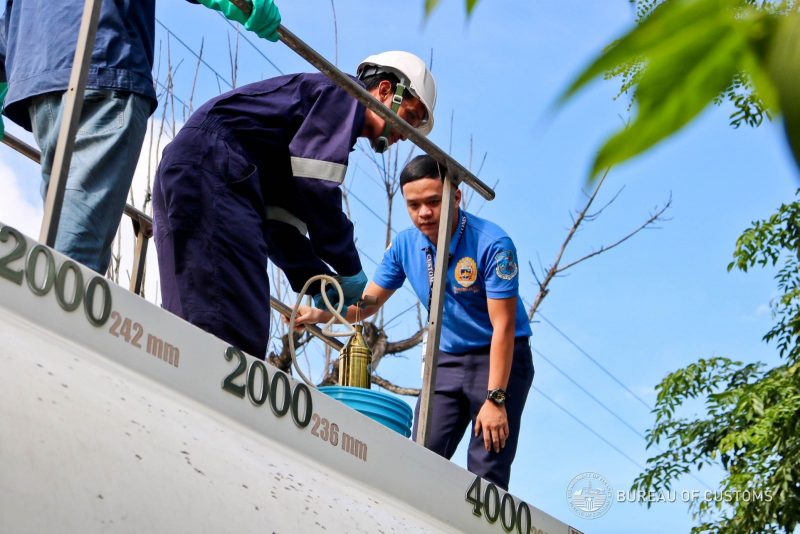THE government’s ‘Fuel Marking Program’ (FMP), a long-delayed project that only got implemented under the leadership of Department of Finance (DOF) Secretary Carlos Dominguez and Bureau of Customs (BOC) Commissioner Rey Leonardo Guerrero, continues to deliver according to expectation after adding more than P118 billion in revenue for the first half of 2022.
Based on official data, the additional revenue came from the ‘marking’ of 9 billion liters of fuel products (gasoline, diesel and kerosene) and now brings a total of P432.3 billion in additional revenue to the government from a total of 43.65 billion of marked fuel since the FMP was officially launched in September 2019, nearly a year after Guerrero took over the top customs post in October 2018.
Deputy Commissioner for Enforcement (DCE) Atty. Teddy Raval, who directly supervises the FMP, noted that diesel comprises 60.59 percent of the total volume marked, followed by gasoline at 38.9 percent and kerosene at 0.51 percent.
As to location, 73.88 percent of the marking was conducted in Luzon, 20.66 percent in Mindanao, and 5.47 percent in the Visayas.
The FMP has been in the government’s agenda since the Ramos administration (1992-1998) aimed at not only combating the rampant smuggling of fuel products but also raise additional revenue for the government while ‘leveling the playing field’ in the downstream Philippine oil industry. The program is being jointly implemented by the BOC and the Bureau of Internal Revenue (BIR), which are both under the DOF and the country’s two main sources of revenue.
Also aligned with the FMP, Raval added that thus far, they have also seized a total of 111,157.80 liters of diesel, 3,311 liters of kerosene, 18,839 liters of gasoline and seized 2 units of tank trucks carrying unmarked fuel with a total estimated value of P14.4 million.
Tanker trucks of 16 retail stations and 4 private companies where BOC found these unmarked fuels were likewise sealed and recommended for filing of criminal cases.
